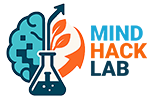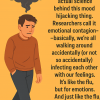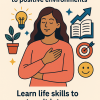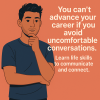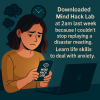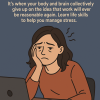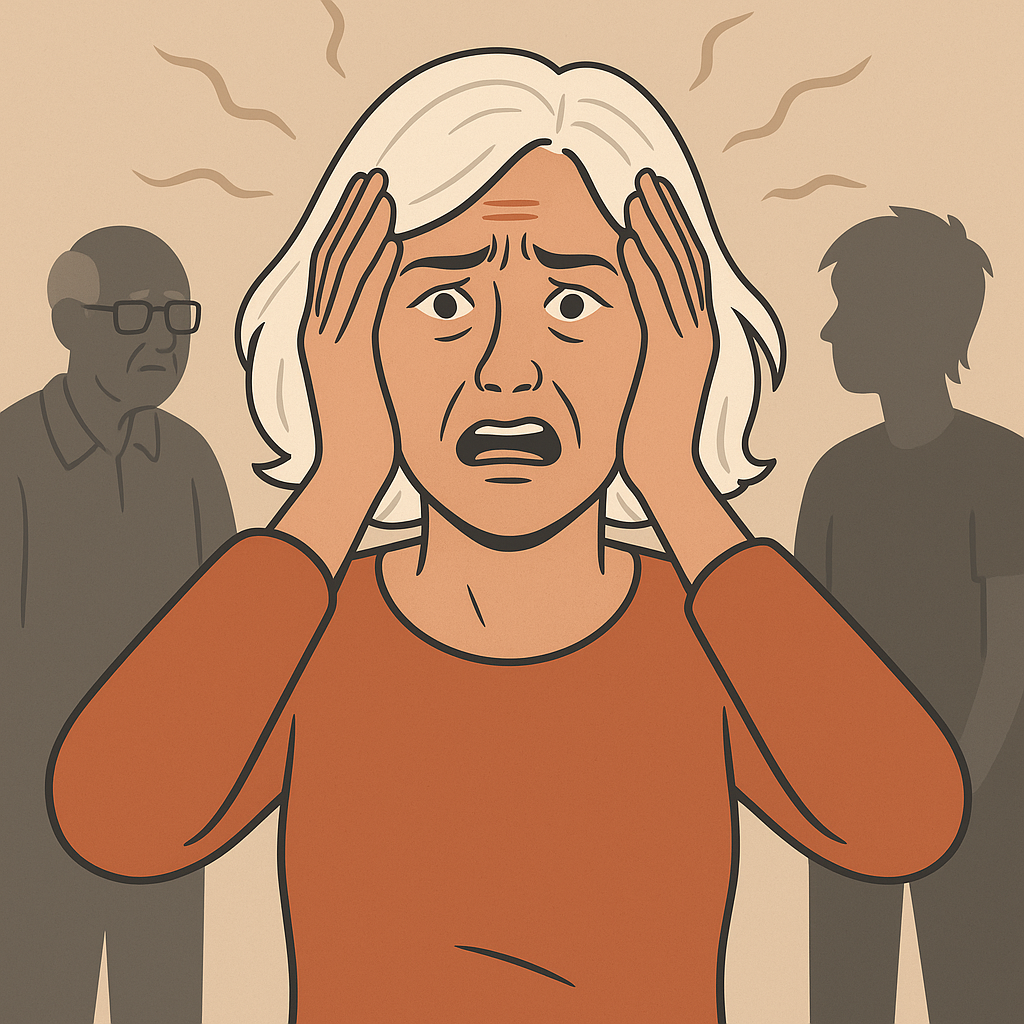
The 3:07 AM Wake-Up (And Other Ways Your Brain Betrays You)
I've been awake since 3:07 this morning.
Started with that usual chest-tightening feeling. You know the one—where tomorrow's meeting suddenly feels like you're about to present to a firing squad. By 3:15, I was running through every possible disaster scenario. By 3:30, I'd mentally quit my job, moved to Vermont, and started making artisanal cheese.
Actually, why Vermont? I don't even like cheese that much.
What's Actually Happening When You Can't Sleep
The problem isn't the meeting. The meeting's fine. It's that something in my stress management system is completely broken. That's what I learned after... god, I don't know, the fourth? Fifth? Let's just say too many sleepless Tuesdays in a row.
Mind Hack Lab calls it the Rest & Recovery pillar. I call it "that thing that stopped working sometime last quarter."
Here's the thing nobody explains: your stress response can't tell time. It definitely can't tell the difference between "important presentation tomorrow" and "saber-toothed tiger outside cave." Both trigger the same ancient alarm system.
I tried everything. Downloaded meditation apps. Seven of them. Still have Calm, Headspace, and three others I can't remember the names of taking up space on my phone. Read articles about "sleep hygiene" which—still don't know what that means. Is it about clean sheets? Not looking at screens? Both?
Even bought one of those weighted blankets. You know, the ones that are supposed to trick your nervous system into calming down. Spent $200 on what's essentially a really heavy quilt. It's currently on my dog's bed. She loves it.
The Middle-of-the-Night Thing
Oh right, I was going to tell you about the protocol that actually helped.
When you're lying there in the middle of the night (mine's usually around 3 AM, yours might be different), there's this thing called the Middle-of-the-Night Protocol. Sounds fancy. It's not.
Actually, wait—let me back up. The first time I tried it, I was skeptical. Another technique? Really? I'd already tried the 4-7-8 breathing thing, the body scan thing, the progressive muscle whatever.
But this worked. Not perfectly. I mean, I still woke up at 3:22 the next night. But I fell back asleep by 3:45 instead of staying up until my alarm went off.
The protocol uses something they call Micro-Recovery. Basically tiny reset moments. You're not trying to achieve inner peace. You're just trying to convince your nervous system that tomorrow's budget review isn't an actual emergency.
Work Stress Is Apparently Everyone's Problem Now
Speaking of emergencies—did you know workplace stress has gotten significantly worse? I read this thing about how 66% of professionals reported burnout symptoms in 2024. Two-thirds. That's not just "feeling tired." That's most of us walking around with broken... what did they call them? Life skill pillars?
Sorry, I'm getting ahead of myself again.
Mine broke during Q3. Or was it Q2? Time blurs together when you're constantly behind on everything. You know how it goes—everything's urgent, nothing can wait, and suddenly you're answering Slack messages during your kid's soccer game. Actually, I don't have kids. But I was answering Slack during my friend's kid's soccer game, which somehow feels worse.
The 30-Minute Thing That Sounded Too Good to Be True
Here's what surprised me: they said fixing this doesn't take months of therapy or a meditation retreat. (Though Bali sounds nice right about now. Do they have good Wi-Fi in Bali? Because I'd still need to check Slack.)
Mind Hack Lab has this 30-minute session approach. One session. Learn techniques for your specific problem. Not generic advice. Not "just breathe deeply." Actual protocols.
I was skeptical. Thirty minutes? Come on. But then I remembered I'd spent the last six months NOT sleeping, so...
They teach you stuff like:
- If-Then Meeting Plan (for when your boss asks something and your brain just... leaves)
- 2-Minute Reframe (for the spiral)
- Some boundary script thing I haven't tried yet
Actually, I lied. I tried the boundary script once. Felt weird. But it worked? My boss actually said "fair point" when I used it. Still processing that.
Everyone's Faking It (This Should Make You Feel Better)
We're all pretending to have it together. That confident colleague who never seems rattled? She told me last week she practices her "calm face" in the bathroom mirror before big meetings. That executive who makes everything look easy? Overheard him on a call with his therapist in the parking garage. We all parked on the same level that day. Awkward.
The difference is some people have learned actual techniques instead of just... suffering through it. They still feel stress. They just handle it better.
Oh, and about those life skill pillars—turns out I had more than one cracked. The sleep thing was obvious, but there's also something called Confidence & Calm Under Pressure which explains why I kept forgetting basic information whenever someone important asked me questions. Fun times.
What Changed (And What Didn't)
A month ago, I would've sworn nothing could fix my middle-of-the-night stress spirals. Too ingrained. Too automatic. Too... me.
But here's the thing: patterns aren't personality. That's what they kept saying in the session. You're not broken. You just need better tools than "try not to think about it."
After 30 days of using the techniques—not perfectly, definitely forgot some days, but enough—the wake-ups dropped from basically every night to maybe once or twice a week. The meeting panic became meeting discomfort. Still there, but manageable.
I found this LinkedIn report about how learning new skills helps professionals find purpose again. Sounds corporate-speaky but it's actually true. Having actual techniques to handle stress makes work feel less like daily torture.
Just Pick One Thing
Look, I can't promise you'll never wake up at stupid o'clock again. Or that meetings will suddenly become fun. But having actual techniques beats lying there catastrophizing until dawn.
If you're reading this at 2 AM (or 3:07, or whenever your brain decides to throw its party), maybe just try one thing. The session. It's 30 minutes. What else are you doing at 3 AM anyway?
This is skills training, not medical or mental health treatment.
